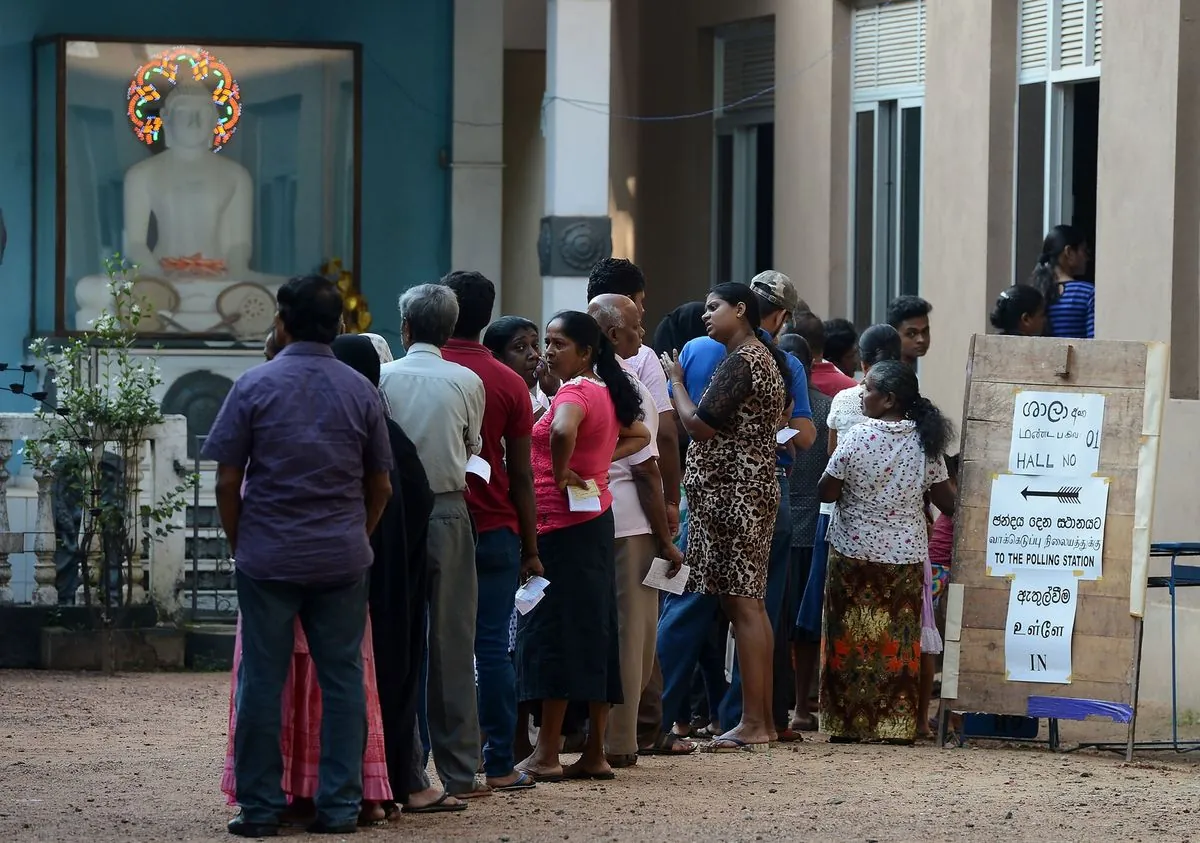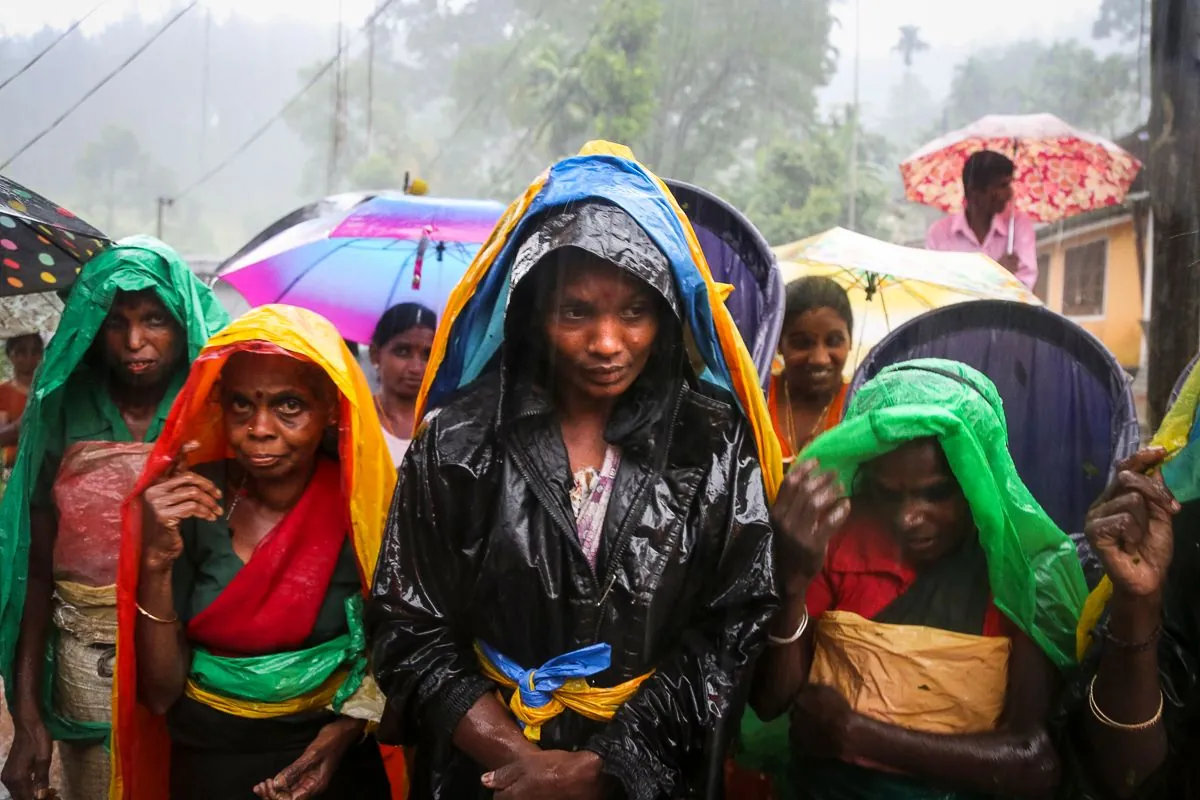Sri Lanka's Election Sparks Economic Uncertainty Amid Recovery
Sri Lanka's upcoming presidential election raises concerns about the country's debt deal and IMF program. Economic recovery under the current administration faces potential disruption as leading candidates propose policy changes.

Sri Lanka, an island nation in South Asia with a population of approximately 22 million, is preparing for a crucial presidential election on September 23, 2024. This vote comes at a critical juncture for the country's economic recovery and has raised concerns among investors and analysts about the future of Sri Lanka's debt restructuring and International Monetary Fund (IMF) program.
The election features 38 presidential candidates, with opposition leader Sajith Premadasa and Anura Kumara Dissanayake, a Marxist-leaning parliamentarian, leading in opinion polls. Current President Ranil Wickremesinghe, who assumed office in 2022, trails in third place.
Sri Lanka's economy, primarily based on services, agriculture, and industry, has shown signs of improvement under Wickremesinghe's administration. The country's real GDP is projected to grow by 3% this year, reversing the previous year's contraction. Inflation, which peaked at 70% in September 2022, has significantly decreased to 0.5% in August 2024. Foreign reserves, once depleted to the point of fuel and medicine shortages, have rebounded to $6 billion.

These positive developments are largely attributed to the $2.9 billion IMF bailout program, which has been central to the country's economic revitalization. Sri Lanka, known for its tea production as the world's fourth-largest producer, has also made progress in debt restructuring. In June 2024, the government signed a $10 billion debt rework agreement with official creditors Japan, China, and India. Additionally, on September 14, 2024, Sri Lanka reached a deal with bondholders to restructure $12.5 billion in international bonds.
However, the upcoming election has cast a shadow of uncertainty over these economic gains. Both Premadasa and Dissanayake have expressed interest in modifying the IMF program and implementing tax changes to address the cost of living. Analysts warn that such alterations could disrupt the country's economic recovery and debt restructuring efforts.
Clifford Lau, a portfolio manager at William Blair, notes the widespread recognition of the economy's steady recovery across all social classes in Sri Lanka. He emphasizes the crucial role of the IMF deal in revamping the country's economy.
Patrick Curran of Tellimer highlights the government's current outperformance of typical targets but stresses that policy continuity depends on the election outcome. Any significant changes to the IMF program could be "immensely disruptive" to both economic recovery and restructuring efforts.
Investors are particularly concerned about the potential delays in debt talks if one of the challengers wins the presidency. Chris Celio, a senior economist at ProMeritum Investment Management LLP, warns that additional delays to restructuring are likely if a new government seeks to fundamentally rework the IMF program.
"Sri Lanka remains officially in default and will remain so until this is over the line. Access to global capital is therefore much more constrained than it otherwise would be."
Despite these concerns, some analysts believe that Sri Lanka's fragile recovery might deter drastic policy changes. The country's rich cultural heritage, influenced by various civilizations throughout its long history, and its status as home to eight UNESCO World Heritage Sites, underscore the importance of maintaining stability for both economic and cultural reasons.
As Sri Lanka approaches this pivotal election, the international community watches closely. The outcome will not only shape the country's economic future but also impact its role in the region and its ability to leverage its diverse ecosystem, considered one of the world's biodiversity hotspots, for sustainable development.


































